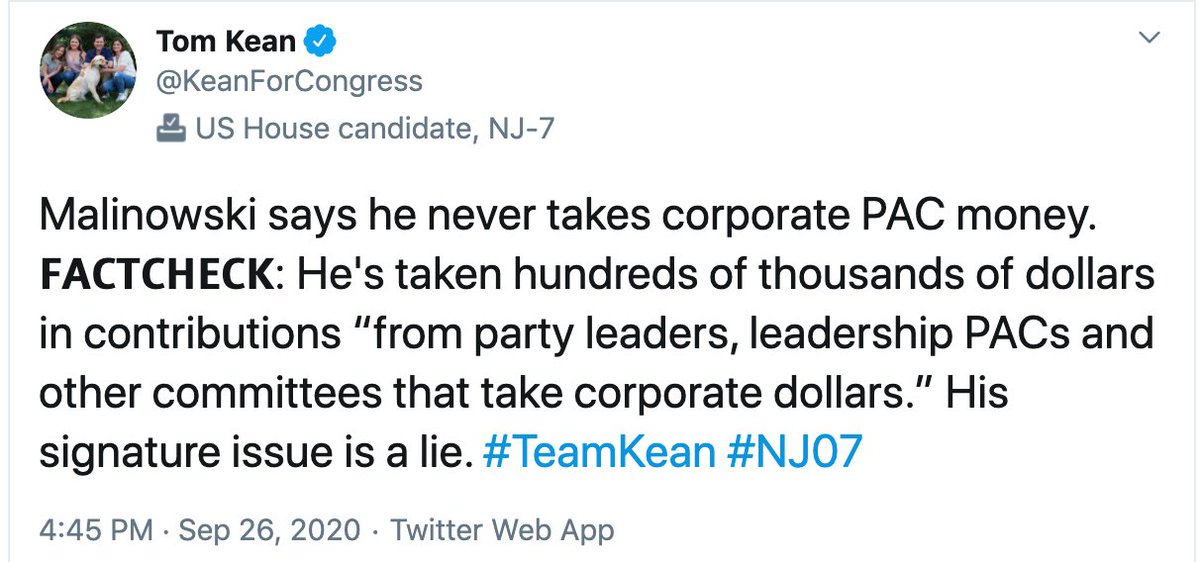I've been puzzling over why my opponent thinks this is a good argument (disparaging my refusal to accept corporate contributions to my campaign). All I can come up with is that he doesn't understand how political corruption in America works.
Let me explain.
Let me explain.

First, it's true that both Senator Kean and I have received campaign contributions from sitting members of Congress who support us. And some of those members (including all backing him) accept corporate PAC checks.
But in those cases, neither Senator Kean nor I have any reason to feel indebted to a corporation that at some point made a campaign contribution to someone else, who then in turn chose to back us. We never solicited it from a corporation, and they never directed it to us.
The difference here is that he accepts donations directly from corporations. That means he's getting on the phone to their CEO's or lobbyists and asking them for money. And they're not giving it to him from the goodness of their hearts. They're making an investment.
I meet corporate execs from my district all the time - we have amazing companies that employ countless people. But when I do, I never worry that they might or might not give me money based on how I vote. And they don't have to worry about me hitting them up. We just talk policy.
That's what this no-corporate PAC pledge is about. It's not about saying that any money that ever passes through a corporation is bad! It's about being able to say that I don't owe them a thing, so I can make decisions solely based on what I think is right for my constituents.
I am also committed to a constitutional amendment to reverse the Supreme Court's Citizens United decision, which allowed unlimited corporate spending on campaigns, and legislation to disclose all contributions to groups that influence elections.
My opponent has endorsed neither.
My opponent has endorsed neither.
P.S., the corporations that have invested directly in Kean for this campaign include Koch Industries, the pharmaceutical company Allergan, and Genie Energy (a natural gas fracking company).
• • •
Missing some Tweet in this thread? You can try to
force a refresh





